What is Geology: A Roadmap to Future Careers
Have you ever thought what is geology and how the Earth works? Geology is the science that helps you uncover its secrets. It’s all about studying the Earth’s physical structure, materials, and the processes that shape it. From towering mountains to the tiniest grains of sand, geology explains it all. But it’s not just about rocks and fossils—it’s about solving real-world problems.
Geologists help tackle global challenges like climate change and resource management. For example, they identify groundwater sources to ensure clean water access and use local materials to improve soil fertility for better food security. They also study past climates using sediment and ice cores, which helps scientists predict future climate trends. Their expertise even supports renewable energy projects and responsible mining practices.
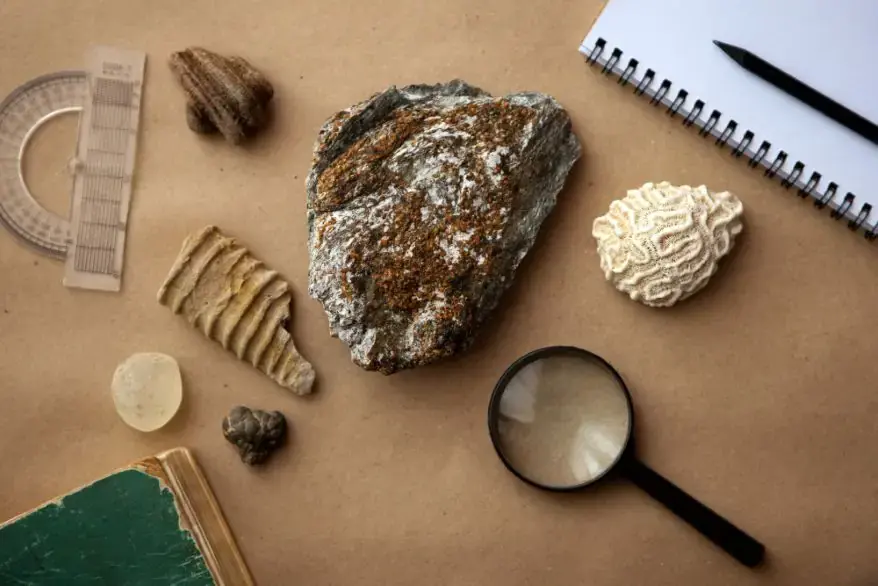
The best part? Geology opens doors to exciting careers. Whether you’re interested in exploring oil reserves, studying volcanoes, or working on sustainable energy solutions, the demand for geologists is growing. So, if you’re curious about the Earth and want to make a difference, geology might just lead you to your perfect path.
Key Takeaways
- Geology is the study of Earth’s materials, changes, and history.
- Geologists solve problems like climate change and managing resources.
- Most geology jobs need a degree, and some need advanced ones.
- Careers in geology range from mining to renewable energy fields.
- Important skills include problem-solving, using GIS tools, and communication.
- Geologists help prevent disasters by studying hazards and preparing communities.
- More geologists are needed as we face climate and sustainability issues.
- Geology links science to real life, making it a meaningful career.
What is Geology
Defining Geology
It’s the science that helps you understand the Earth inside and out. Geology dives into the study of Earth’s physical structure, the materials it’s made of, and the processes that shape it over time. Altogether, think of it as the Earth’s biography, revealing its history through rocks, minerals, and fossils.
Geology isn’t just about looking at rocks, though. It’s about uncovering the stories they tell. For example, sedimentary rock layers, first explained by Nicolaus Steno, show how Earth’s surface changes over time. Thus, these layers act like pages in a book, recording events like volcanic eruptions or ancient river flows.
James Hutton, often called the “Father of Modern Geology,” introduced the principle of uniformitarianism.
This idea says that the natural processes shaping the Earth today—like erosion and sedimentation—are the same ones that worked millions of years ago. It’s like looking at the present to understand the past. Later, Charles Lyell popularized these ideas, helping people grasp the vastness of geological time.
Geology also got a major boost with the theory of plate tectonics. This concept explains how continents drift, mountains form, and earthquakes happen. Therefore, it’s like solving a giant puzzle of Earth’s surface.
Importance of Geology in Modern Society
Geology plays a huge role in your everyday life, even if you don’t realize it. It helps solve some of the world’s biggest challenges.
- Geologists help locate natural resources like oil, gas, and minerals. These materials power your homes, build your cities, and even make your smartphones.
- They study natural disasters like earthquakes and volcanoes, helping communities prepare and stay safe.
- Geology is key to understanding climate change. By studying ice cores and sediment layers, geologists uncover clues about Earth’s past climates. This helps predict future trends and find solutions.
- Renewable energy relies on geology too. Geothermal energy, for instance, taps into heat stored beneath the Earth’s surface.
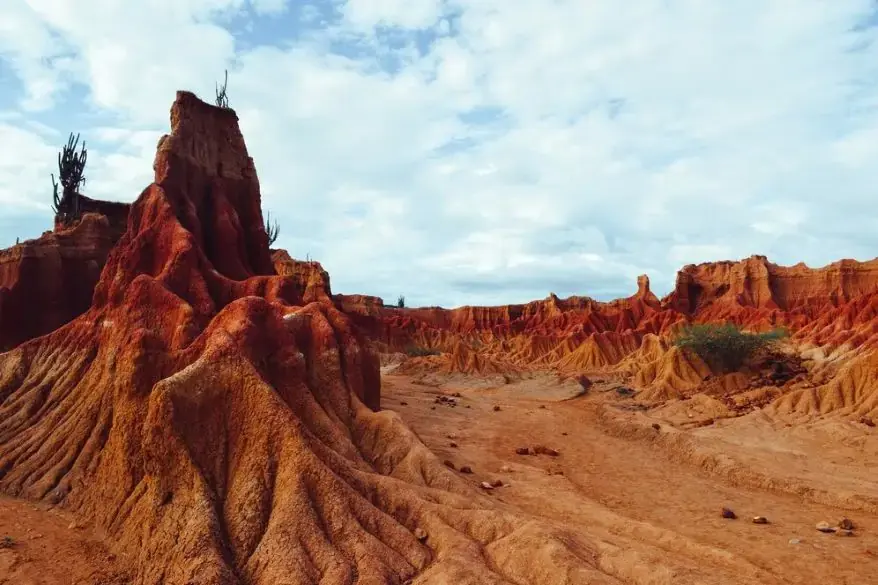
If you’re thinking about a geology program, you’re stepping into a field that’s not just fascinating but also impactful. Geology connects science with real-world problems, making it a vital part of modern society.
As you can see, geology isn’t just about studying rocks. It’s about understanding the Earth and using that knowledge to make life better for everyone. Whether you’re interested in traditional geology careers or emerging fields, this science offers endless opportunities to explore and grow.
Exploring Career Paths in Geology
Whether you’re drawn to traditional roles or excited by emerging fields, geology offers diverse career paths that cater to different interests and skills. Let’s dive into what’s out there for you.
Traditional Career Paths in Geology
If you’re considering geology careers, traditional roles remain a solid choice. These jobs have been around for decades and continue to play a vital role in industries like mining, environmental management, and academia.
- Exploration Geologist: You’ll identify and evaluate new mineral deposits through fieldwork and geological mapping.
- Mine Geologist: This role involves monitoring ore quality, geological mapping, and sample analysis in mining operations.
- Environmental Geologist: You’ll assess and manage environmental risks, ensuring mining activities comply with regulations.
- Geotechnical Engineer: Particularly, this job focuses on the engineering properties of earth materials, helping design safe mine structures.
- Consulting Geologist: You’ll provide expertise on projects, from exploration to environmental assessments.
- Corporate Geologist: Working with oil or natural gas suppliers, you’ll test land and assess resources.
- Government Geologist: You might educate communities or recommend policies on land risks and natural disasters.
These roles offer stability and growth, making them ideal for entry-level positions or long-term careers.
Emerging Career Paths in Geology
The world is changing, and so are geology careers. New technologies and global challenges are creating exciting opportunities in this field.
- Environmental Consulting: As an environmental consultant, you’ll assess environmental impacts and develop sustainable practices. This role has a median salary of $73,230, with experienced professionals earning over $100,000.
- Geospatial Analyst: The tech industry is hiring geologists for data analysis and GIS roles. With a median salary of $77,000, this career path combines geology with cutting-edge technology.
- Education and Nonprofits: If you’re passionate about sustainability, you can work in education or nonprofits, focusing on climate change and resource management.
Technological advancements like remote sensing, GIS mapping, and geophysical imaging are driving these new career paths in geology. These tools allow you to collect data from hazardous areas, analyze spatial patterns, and visualize subsurface structures.
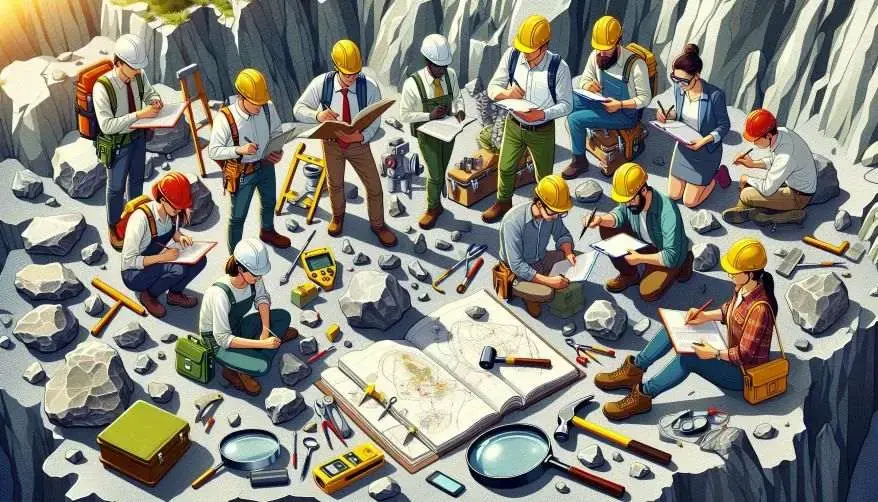
Academic and Research Opportunities
If you love learning and discovery, academia and research might be your calling. Universities and research institutions offer plenty of opportunities for geologists.
- Faculty members often involve students in ongoing research projects.
- Undergraduate and graduate students can participate in special projects or thesis work, such as Geology 300 or 400 (Independent Study) and Geology 490 (Senior Thesis).
- External fellowships and postdoctoral opportunities are available for advanced research.
Research in geology contributes to significant advancements. For example, geologists help identify groundwater resources, improve soil fertility, and inform sustainable development efforts.
Organizations like the National Science Foundation and U.S. Geological Survey often fund these projects, making it easier for you to pursue your passion.
Whether you’re interested in traditional roles, emerging fields, or academic research, geology offers a wide range of career paths. The key is to find what excites you and start exploring!
Pursuing a Geology Degree
Educational Requirements for Geology Careers
If you’re thinking about a career in geology, your education is the first step.
Most entry-level jobs require at least a bachelor’s degree in geology, earth science, or a related field.
Basically, this degree gives you a solid foundation in subjects like mineralogy, petrology, and structural geology. Some positions, especially those in environmental science or engineering, may accept degrees in related fields.
For specialized roles, like becoming an environmental geologist or working in academia, you’ll likely need an advanced degree. Similarly, a master’s degree opens doors to research opportunities and higher-paying positions. If you’re aiming for a career in teaching or cutting-edge research, a Ph.D. is often essential.
Skills Needed for Success in Geology
Success in geology isn’t just about knowing rocks; it’s about mastering a mix of technical and soft skills. Here’s what you’ll need:
- Analytical Thinking: You’ll need to observe patterns and analyze complex data to solve geological puzzles.
- Proficiency in GIS and Geophysical Tools: Geographic Information Systems (GIS) and geophysical modeling software are essential for analyzing spatial data and understanding geological processes.
- Effective Communication: Whether you’re writing reports or presenting findings, clear communication is key. You’ll also need strong interpersonal skills to collaborate with other scientists.
- Commitment to Continuous Learning: Geology is always evolving. Attending workshops, pursuing higher education, and staying updated on advancements will keep you ahead.
These skills not only make you a better geologist but also prepare you for diverse careers in the field.
Certifications and Professional Development
Certifications can give your career a significant boost. They enhance your resume and prepare you for specific job requirements. For example, the Geologist-in-Training Certificate, earned by passing the ASBOG® Fundamentals of Geology exam, is a great starting point.
If you’re interested in geospatial technologies, certifications like Esri Technical Certification or GISCI certification can set you apart. For those diving into underwater research, the American Academy of Underwater Sciences offers a Scientific Diver Certification.
Professional development doesn’t stop there. Further, attending conferences, networking, and participating in seminars can open new opportunities. Specialized certifications or leadership roles can also help you advance in your career.
As geologist James Hutton once said, “The present is the key to the past.” In your case, continuous learning is the key to your future.
By focusing on your education, honing essential skills, and pursuing certifications, you’ll be well-prepared to thrive in the dynamic world of geology.
Future Trends in Career Paths in Geology
Geology’s Role in Climate Change Mitigation
Geology plays a vital role in addressing climate change. You might not realize it, but geologists are like detectives of Earth’s past. They study sediment and ice cores to reconstruct ancient climates. This helps scientists understand long-term climate patterns and predict future changes. By collaborating with climate modelers, geologists create paleoclimate models that simulate past conditions. These models are essential for preparing for what’s ahead.
Geologists also assess climate-related hazards.
For example, they analyze areas prone to flooding or landslides, helping communities plan safer land use. Their expertise doesn’t stop there. They work on carbon capture and storage (CCS) projects, identifying underground sites to store CO2 safely. Eventually, this reduces greenhouse gas emissions and slows global warming.
If you’re passionate about sustainability, geology offers exciting opportunities to make a difference. You could work on projects that promote responsible mining or explore alternative energy sources. As the world faces climate challenges, your skills as a geologist will be in high demand.
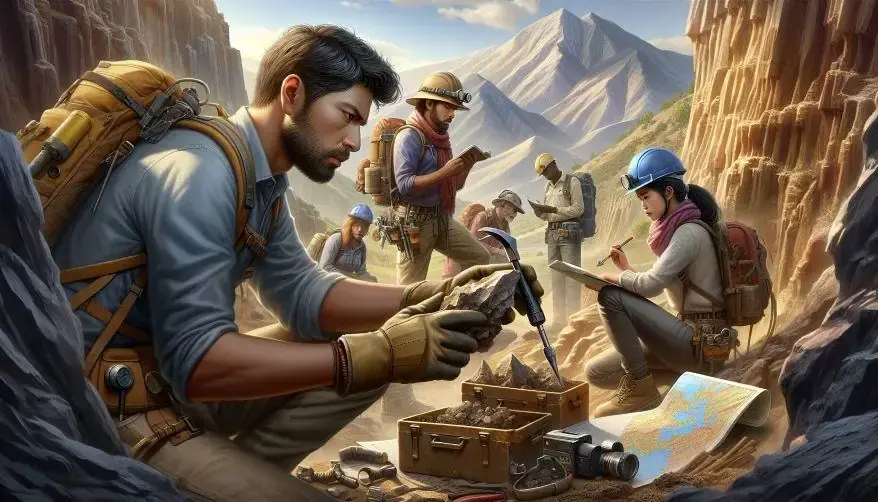
Renewable Energy and Geology
The shift to renewable energy depends heavily on geology. Geologists help locate materials like lithium, cobalt, and nickel, which are essential for renewable technologies. Furthermore, these materials power batteries for electric vehicles and store energy from solar and wind sources. Without geologists, the renewable energy industry wouldn’t thrive.
Geothermal energy is another area where geology shines.
Geologists study Earth’s heat and identify locations for geothermal plants.
These plants provide clean, sustainable energy by tapping into underground heat. It’s a fascinating field that combines science with real-world impact.
You could also explore jobs in resource management for renewable energy. This involves ensuring the efficient use of both renewable and non-renewable resources. As the world transitions to cleaner energy, geology will remain at the forefront of innovation.
Sustainable Resource Management
Geology is key to sustainable resource management. Geologists help identify groundwater sources, ensuring access to clean water. They also use local materials to improve soil fertility, supporting food security. Therefore, these efforts align with global sustainability goals and make a real difference in people’s lives.
Geologists also study the origin and distribution of resources like metals, minerals, and fossil fuels.
They assess the environmental and social impacts of resource extraction. This helps industries make informed decisions and adopt responsible practices.
For example, geologists might evaluate the effects of mining on local ecosystems. Moreover, they provide recommendations to minimize harm and promote sustainability. By combining science with ethical practices, geology contributes to a better future.
If you’re interested in sustainability, geology offers rewarding careers. You’ll have the chance to solve real-world problems and create lasting change.
Real-World Example
Protecting Communities from Natural Disasters
Imagine you’re a geologist working in a region prone to earthquakes. You study fault lines and seismic activity to predict where the next quake might hit. Particularly, your findings help engineers design earthquake-resistant buildings. In 2011, geologists in Japan played a key role after the Tōhoku earthquake. They analyzed the event to improve early warning systems, saving countless lives in the future.
Conclusion
What is geology, it is more than just studying rocks; it’s about solving real-world problems and shaping a sustainable future. Eventually, it helps you understand the Earth’s processes, from predicting natural disasters to managing resources responsibly. For example, geologists create hazard maps and study fault lines to protect communities from earthquakes. They also uncover past climate patterns, which guide today’s climate models and solutions.
The field offers diverse and exciting careers. Whether you’re drawn to renewable energy, environmental consulting, or space exploration, geology has something for everyone. Plus, the demand for geologists is growing as the world faces challenges like climate change and resource management.
If you’re curious about the Earth and want to make a difference, geology could be your perfect path. Basically, it’s a career that combines science, adventure, and impact. So, why not take the first step and explore this fascinating field?
FAQ’s
1. What does a geologist do?
Geologists study the Earth’s materials, processes, and history. They analyze rocks, minerals, and fossils to understand natural events like earthquakes or volcanic eruptions. Moreover, their work helps locate resources, predict natural disasters, and solve environmental challenges.
2. What industries hire geologists?
Geologists work in diverse industries, including:
- Energy (oil, gas, and renewables)
- Mining (minerals and metals)
- Environmental consulting
- Government agencies
- Academia and research
3. How is geology connected to climate change?
Geologists study past climates through ice cores and sediments. This helps predict future trends. They also work on carbon capture projects and assess areas vulnerable to climate-related hazards like flooding or landslides.
4. Can geology lead to a career in renewable energy?
Absolutely! Geologists locate essential materials like lithium and cobalt for batteries. They also identify geothermal energy sites and manage resources for solar and wind energy projects. Hence, it’s a growing field with exciting opportunities.
5. Can geologists work in space exploration?
Yes! Planetary geologists study other planets’ surfaces. NASA’s Mars Rover missions rely on geologists to analyze Martian rocks. Eventually, their work helps uncover the planet’s history and potential for life.
References
- Russo, F., & Sisto, M. (2023). Career in Geology: an educational project in Geosciences for the enhancement of student learning in STEM disciplines. Geosciences, 13(2), 50. https://doi.org/10.3390/geosciences13020050
- Short papers in geology, hydrology, and topography; Articles 1-59: Geological Survey Research 1962. (1962). USGS Professional Paper. https://doi.org/10.3133/pp450b
- Almeida, A., Vasconcelos, C., Pereira, C., Torres, J., & Moutinho, S. (2013). THE ROLE OF GEOLOGY IN a SUSTAINABLE SOCIETY: PERCEPTIONS OF UNIVERSITY STUDENTS. ICERI2013 Proceedings, 6332–6340. https://doi.org/10.13140/2.1.2417.8249
- Häggquist, E., & Söderholm, P. (2014). The economic value of geological information: Synthesis and directions for future research. Resources Policy, 43, 91–100. https://doi.org/10.1016/j.resourpol.2014.11.001
Additionally, to stay updated with the latest developments in STEM research, visit ENTECH Online. Basically, this is our digital magazine for science, technology, engineering, and mathematics. Furthermore, at ENTECH Online, you’ll find a wealth of information.
Disclaimer: We do not intend this article/blog post to provide professional, technical, or medical advice. Therefore, please consult a healthcare professional before making any changes to your diet or lifestyle. In fact, we only use AI-generated images for illustration and decoration. Their accuracy, quality, and appropriateness can differ. So, users should avoid making decisions or assumptions based only on the text and images.
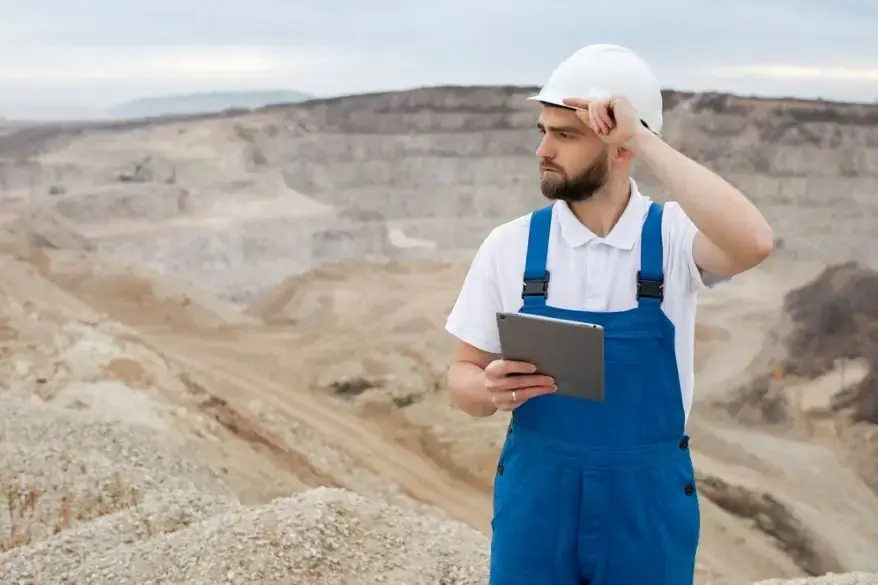






V good 😊 , thank you
Thanks for your comment! ENTECH Online is more than just a magazine; it’s a gateway to a world of possibilities for teenagers passionate about Science, Technology, Engineering, and Mathematics (STEM).
Keep visiting entechonline.com to read the latest news and articles on Science, Technology, Engineering and Mathematics STEM.
Thankyou for providing such a nice article
Thanks for your comment! ENTECH Online is more than just a magazine; it’s a gateway to a world of possibilities for teenagers passionate about Science, Technology, Engineering, and Mathematics (STEM).
Keep visiting entechonline.com to read the latest news and articles on Science, Technology, Engineering and Mathematics STEM.
Amazing 🤩
Thanks for your comment, keep visiting entechonline.com for more articles related to your interests.